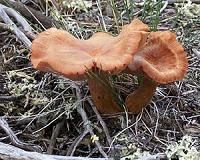 |
Kent, Ohio (UPI) Nov 9, 2010 U.S. researchers say a fossil of a shrimp found in Oklahoma is likely the oldest in the world, dating to 360 million years ago and remarkably well preserved. Professors Rodney Feldmann and Carrie Schweitzer of Kent State University's Department of Geology said the fossil shrimp, having a length of about 3 inches, was found by fellow paleontologist Royal Mapes of Ohio University and his students, a Kent State release said. Feldmann and Schweitzer named the fossil after Mapes: Aciculopoda mapesi. The discovery is one of the two oldest decapods -- for '10-footed,' to which shrimp, crabs and lobsters belong -- ever found. The other decapod, Palaeopalaemon newberryi, is of similar age and was found in Ohio and Iowa. "The shrimp from Oklahoma might, thus, be the oldest decapod on Earth," Feldmann explained. "The oldest known shrimp prior to this discovery came from Madagascar. [That] one is way younger, having an age of 'only' 245 million years, making the shrimp from Oklahoma 125 million years older." The Oklahoma fossil is not only remarkable for its age but also because of its preservation, with muscles in its tail preserved, something extremely rare in fossils. "When the animal died, it came to rest on the seafloor," Feldmann said. "The muscles then were preserved by a combination of acidic waters and a low oxygen content as the animal was buried rapidly."
Share This Article With Planet Earth
Related Links Explore The Early Earth at TerraDaily.com
 Ancient Plants And Soil Fungi Turned Earth Green
Ancient Plants And Soil Fungi Turned Earth GreenWestern Bank, UK (SPX) Nov 05, 2010 A new breakthrough by scientists at the University of Sheffield has shed light on how the Earth's first plants began to colonise the land over 470 million years ago by forming a partnership with soil fungi. The research, published Nov 2, 2010, in Nature Communications, has provided essential missing evidence showing that an ancient plant group worked together with soil-dwelling fungi to 'g ... read more |
|
| The content herein, unless otherwise known to be public domain, are Copyright 1995-2010 - SpaceDaily. AFP and UPI Wire Stories are copyright Agence France-Presse and United Press International. ESA Portal Reports are copyright European Space Agency. All NASA sourced material is public domain. Additional copyrights may apply in whole or part to other bona fide parties. Advertising does not imply endorsement,agreement or approval of any opinions, statements or information provided by SpaceDaily on any Web page published or hosted by SpaceDaily. Privacy Statement |